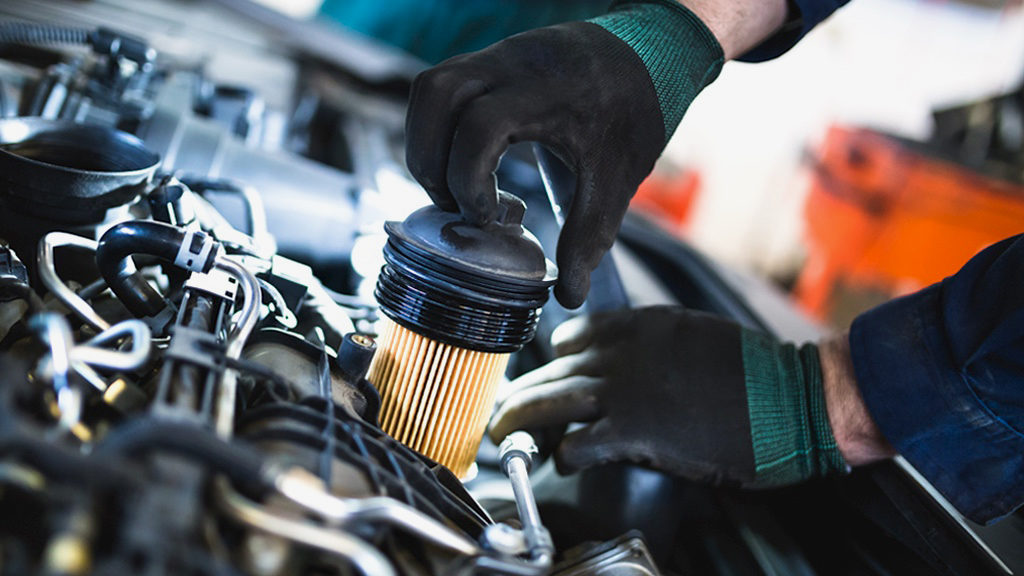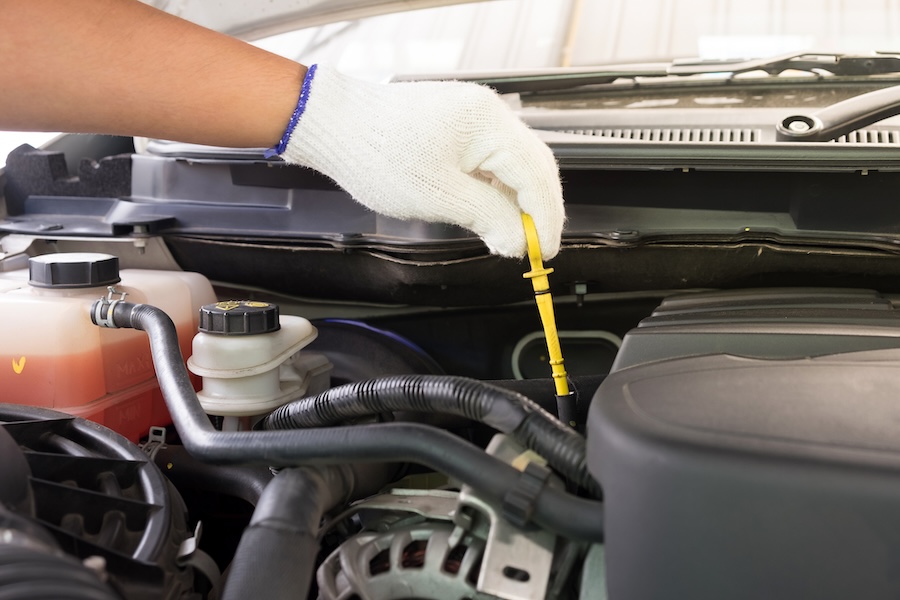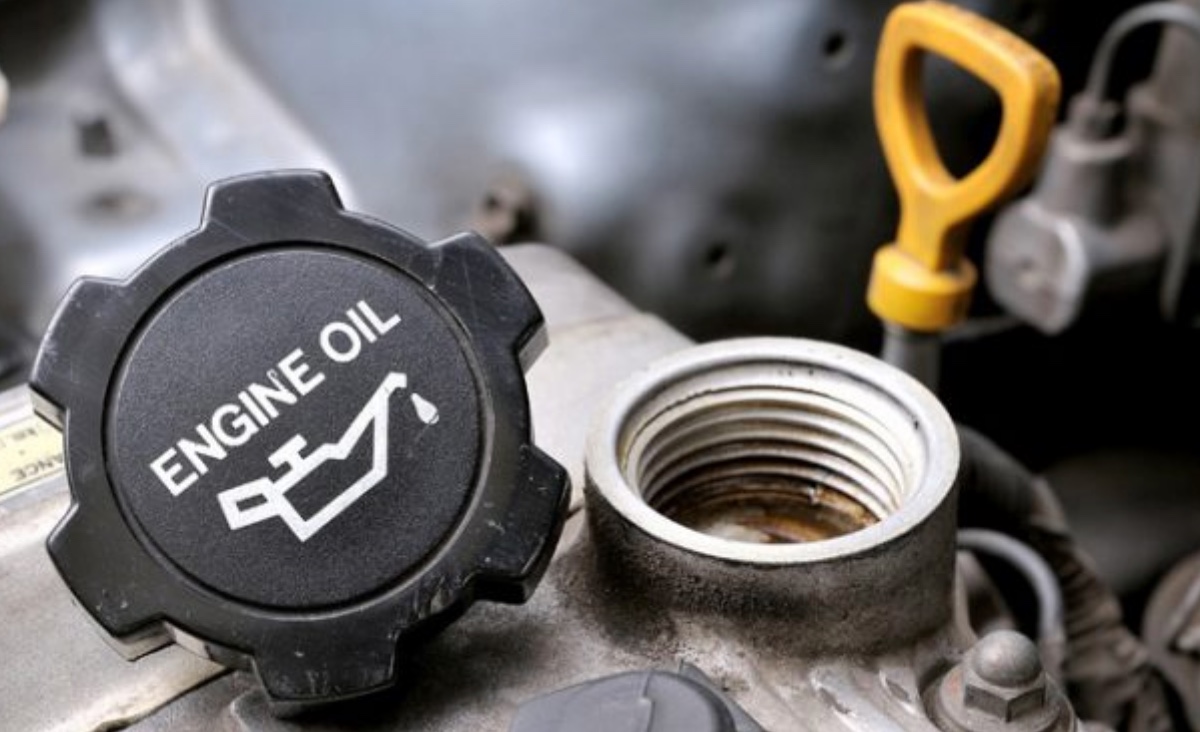How To Choose the Right Oil Filter for Your Car
Changing your own oil is one of the simplest starting points to becoming a DIYer. But in addition to the oil, did you know that the oil filter plays an equally important role? It's the unsung hero that keeps your oil clean and debris-free between changes, ensuring smooth and efficient engine performance.
If you've ever walked into an auto parts store, you also know that choosing an oil filter can be overwhelming. The shelves are stacked high with different brands and types, all clamoring for your attention. However, not all oil filters are created equal, and picking the wrong one might not only cost you more but can put your engine at risk.
That's why we've developed this quick and easy guide. It delves deep into the world of oil filters, exploring what they do, the different types available and the key factors to consider when selecting an oil filter for your car.

What Do Oil Filters Do?
Oil is the lifeblood of your engine. It's pumped throughout the moving components of the engine, lubricating, cleaning and protecting them. As it circulates, oil also picks up dirt, metal particles and other impurities that degrade its ability to function.
That's where the oil filter comes in. Like the kidneys in the human body, its primary function is to remove contaminants. As oil flows through it, the filter traps tiny particles that don't belong, preventing them from circulating back into the engine and causing unnecessary wear and tear.
Over time, however, the filter becomes clogged with the very contaminants it's designed to collect. This not only prevents the filter from capturing additional debris but also impedes oil flow. Both are killers for engine fitness and longevity. That is why it's crucial to change your oil filter regularly, typically with every oil change.
Types of Oil Filters
Oil filters come in two basic types: spin-on and cartridge.
- Spin-on filters are the most common. Cylinder-shaped, these are self-contained units that screw directly onto the engine block.
- Cartridge filters, on the other hand, consist of a replaceable filter element that fits in a permanent housing on the engine. They’re becoming increasingly more common in modern cars thanks to their more environmentally friendly design.
Oil filters also fall into two main grades: standard and high-performance.
- Standard-grade filters typically use paper as the main filtration material. This paper is capable of trapping particles as small as 25 to 30 microns, about the size of a speck of sawdust. That's sufficient for most engines operating under normal pressures and temperatures, making standard-grade filters the go-to choice for routine driving. With starting prices around $5.00, standard-grade filters are also the most affordable option.
- High-performance oil filters cater to more demanding applications. They utilize higher-quality synthetic materials capable of trapping microscopic impurities as small as 10 microns, roughly the diameter of a red blood cell. This heightened filtration efficiency better protects engines that operate in high-stress situations, such as high-performance driving or towing.

At the Store: Buyer Beware
Any auto parts store can sell you an oil filter that will fit your car. But before you simply grab the cheapest available option, consider a few important factors to ensure you're getting adequate protection for your engine. Your choice should be a thoughtful balance between the technical specifications of your vehicle, the type of oil you use and your typical driving conditions.
Here’s your roadmap:
Consult your vehicle's owner's manual. It will provide the specifications for filters compatible with your engine's design and basic needs. This is especially crucial if your car is still under warranty. If you use the wrong filter and it is proven to be the cause of an engine failure, your car’s manufacturer could deny a warrantable repair. The manual may also offer recommendations for specific brands or models, which can be helpful.
Consider the type of engine oil: your choice of filter also is influenced by the oil you use in your vehicle. If you're using synthetic oil, particularly mixtures designed for extended oil change intervals, opt for a filter that uses synthetic materials rather than a conventional paper filter. Often labeled "extended-performance" filters, they are constructed to match the longevity and performance of synthetic oils, offering finer filtration over a longer period.
Consider a high-performance filter: driving in more challenging conditions, such as dusty roads, lots of stop-and-go traffic, towing or extremely hot or cold weather requires a high-performance filter. They cost a bit more than standard filters, but protecting a hard-working engine is money well spent. Prices start at about $10, but even if you need only a standard-grade filter, opt for one that boasts high-quality materials and construction.
An original equipment manufacturer (OEM) filter is usually the best option because it's specifically designed to fit your car. But numerous aftermarket suppliers, such as Bosch and Mobil 1, offer first-rate products. Off-brand or budget filters may be suitable in a pinch, but investing in a reputable brand often translates into better engine protection and performance over the long haul.
Final Thoughts
An oil filter is a critical part that directly impacts the long-term fitness of your engine. The right filter should align with your vehicle manufacturer's specifications, the type of oil you use and the conditions under which you drive.
Whether it's standard or high-performance, paper or synthetic, OEM or aftermarket, an oil filter is more than a routine purchase.
So, the next time you're doing a DIY oil change, take a moment to consider the humble oil filter. This generic looking component can have a big impact on your car's overall health.


